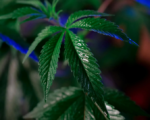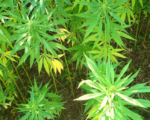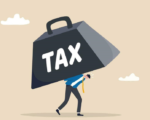Washington D.C.’s cannabis decriminalization is once again under scrutiny — this time from the Trump White House, which claims the city’s soft stance on weed has helped fuel crime and disorder. The critique appears in a quietly released fact sheet accompanying a new executive order, though the order itself never mentions cannabis directly.
The tone? Pretty blunt. The message? Clear enough: The president isn’t thrilled with how D.C. has handled drug policy. But the timing, wording, and lack of direct action leave more questions than answers.
From plants to policies: White House paints a messy picture
In a document published alongside an executive order focused on the “beautification” of Washington D.C., the administration pointed fingers at several local policies — with cannabis decriminalization near the top. The language was stark: “D.C.’s failed policies opened the door to disorder — and criminals noticed.”
That’s not exactly subtle.
The document lumps the cannabis shift together with moves like scrapping pre-trial detention and loosening policing mandates. But it’s more what’s implied than what’s actually spelled out that’s drawing attention.
The executive order talks about ramping up federal and local law enforcement collaboration. It even mentions drug possession and sale as concerns. Yet it never directly cites cannabis. Why the coyness?
Some think it’s politics. Others think it’s legal gray zones.

A tale of two Trumps: Weed views from the campaign trail
Here’s where it gets a bit murky. Trump hasn’t always been this cranky about cannabis. In fact, just last year, during campaign stops in Florida, he said he’d vote “yes” on legal adult-use marijuana. That ballot initiative flopped — but the support was noted.
Even more interesting? Trump once voiced support for federally rescheduling cannabis, something that’s been inching forward under the Biden Administration.
But his track record? Thin.
During his first term, cannabis policy didn’t exactly top his to-do list. No major bills passed. No executive actions taken. Just vague nods and occasional sound bites. Since returning to office, the issue’s barely come up — until now.
And even this swipe is more of a side comment than a center-stage policy.
D.C.’s complicated cannabis status: Legal but not really
Let’s zoom out for a sec. Washington D.C. is in a weird spot when it comes to weed. In 2014, nearly 65% of voters approved Initiative 71, which decriminalized possession and home growing for adults over 21.
But here’s the twist: thanks to Congress having oversight over D.C.’s budget, lawmakers blocked the city from setting up a legal marketplace. That means you can own cannabis in D.C., and even gift it — but not buy or sell it legally.
So what’s happened instead?
• A “gray market” of pop-up weed shops and gifting schemes
• Businesses selling stickers or t-shirts with “free” weed
• Very little regulatory oversight or standardization
Critics say this unregulated space has attracted trouble. Supporters argue it’s the result of federal interference. Depends on who you ask.
Is cannabis really driving crime in D.C.? Let’s look at the numbers
Okay, so let’s get factual for a minute. Is D.C. actually spiraling because of cannabis?
Not exactly.
According to D.C. Metropolitan Police Department data, violent crime increased in 2023 — but the causes are layered. Most incidents weren’t tied directly to cannabis. In fact, many were rooted in gun violence, gang activity, and poverty.
Here’s a quick breakdown of recent numbers from MPD:
| Crime Category | 2022 | 2023 | % Change |
|---|---|---|---|
| Homicide | 203 | 261 | +28.6% |
| Assault with weapon | 2,281 | 2,392 | +4.9% |
| Drug violations | 1,416 | 1,288 | -9.0% |
| Robbery | 2,358 | 2,720 | +15.4% |
Yep — drug violations actually went down last year.
So what’s the real issue? Some experts say enforcement inconsistencies and patchwork policies are fueling confusion — not necessarily the plant itself.
Why this matters: Politics, image, and federal overreach
This latest jab at cannabis policy isn’t just about weed. It’s about optics, authority, and turf wars.
Trump’s executive order talks a lot about restoring “order” and “beauty” in D.C. That plays well with voters worried about crime. But critics say it’s a thinly veiled attempt to reassert federal control over a city that’s leaned progressive on issues like cannabis, criminal justice, and policing.
In a way, D.C. becomes a political punching bag.
It’s local democracy versus federal authority — again.
And this “disorder” narrative? It gives the administration cover to boost federal law enforcement in the district without outright blaming one issue or another. Cannabis just happens to be a convenient target this time.
What’s next? Nobody knows, but everyone’s watching
Right now, there’s no new federal policy targeting cannabis in D.C. No enforcement sweeps, no court battles, no proposed laws. Just a fact sheet and a few sharp words.
But that doesn’t mean it’s nothing.
For activists and lawmakers, this could be a warning shot — or a signal that more oversight is coming. For voters, it’s a reminder that even legal weed isn’t safe from political winds.
And for D.C. residents? It’s just another chapter in a long, messy saga over who gets to decide what’s legal, what’s not, and what “disorder” even means.
Maria Garcia is an award-winning author who excels in creating engaging cannabis-centric articles that captivate audiences. Her versatile writing style allows her to cover a wide range of topics within the cannabis space, from advocacy and social justice to product reviews and lifestyle features. Maria’s dedication to promoting education and awareness about cannabis shines through in her thoughtfully curated content that resonates with both seasoned enthusiasts and newcomers alike.








